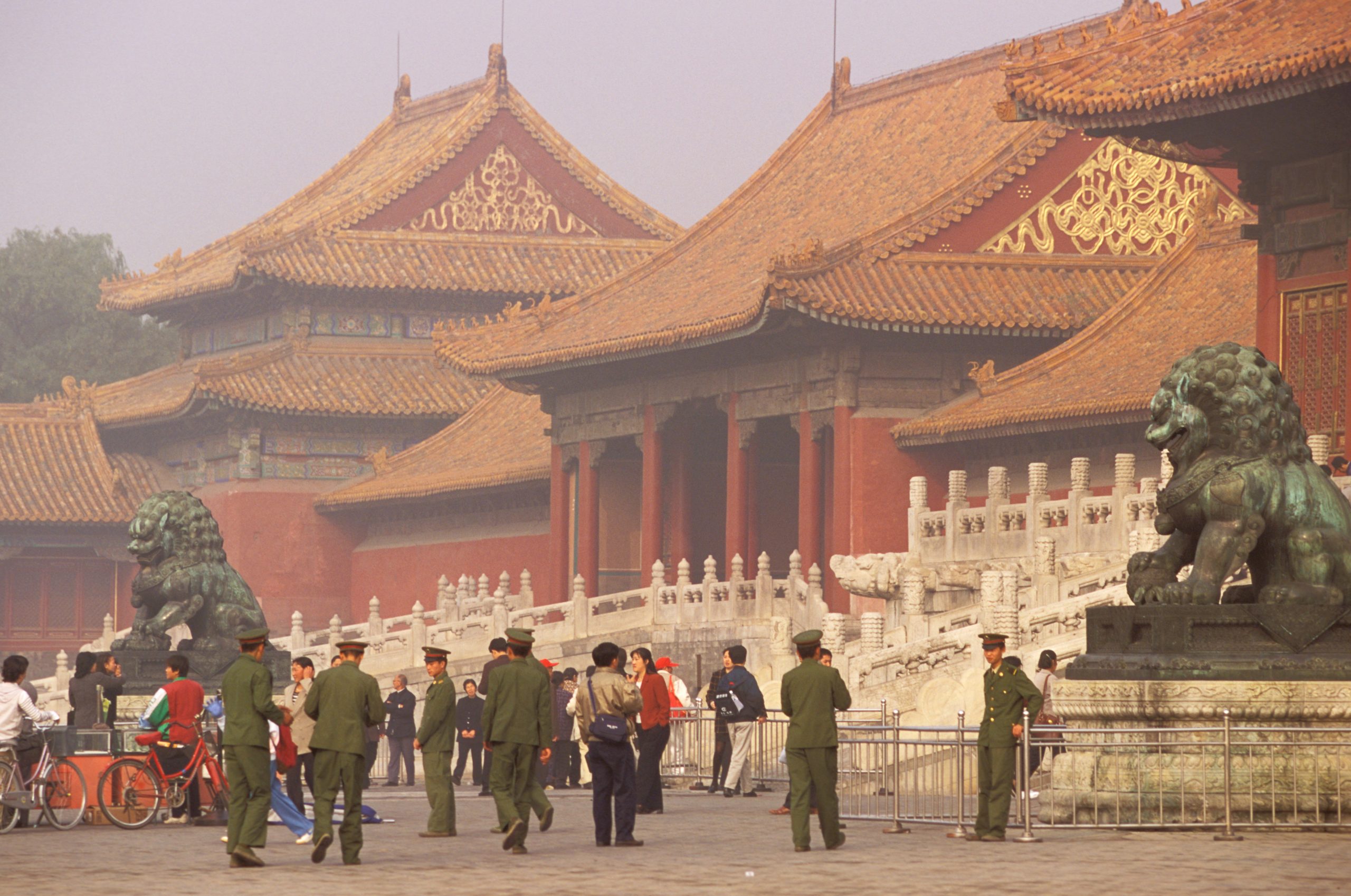Seduced by China

Simon Winchester is the author of such best-selling books as ”A Crack in the Edge of the World,” ”Krakatoa,” ”The Professor and the Madman,” and ”The Map That Changed the World.” A native of England , he has lived in Africa, India and Hong Kong and currently divides his time between an island in Scotland and a farm in western Massachusetts . He has written for Conde Nast Traveler, Smithsonian, and National Geographic, and is currently working on a book about China .
Vast. Ancient. Imperturbable. Time and again these three words would present themselves to me whenever I wandered across China – and they did so no matter how infuriatingly difficult or appalling the conditions of my journeying. From the very moment I first arrived, back on a cold and dusty Peking dawn thirty years ago, to the day that I am writing this, leaving on a jet-plane from the now-glittering Armani-and-Coke metropolis of Changsha, it was those three words, those three concepts, that underwrote all that I have to come to know and feel and love about the place.
And oh! was that first morning cold – bitter and harsh, with the fine wind-blown sand of Mongolia stinging the air, and Chinese soldiers huddled in great green padded coats at every airport gate. The city people, all in jackets of blue drab, walked or cycled in a kind of silent languor; a few black cars moved slowly along Changan Avenue beneath the immense portrait of Chairman Mao. The hotel was gray and gaunt and deathly quiet, and there was only hot water and green tea and cheap Shandong beer to drink with our noodles.
What a sorry place, I think we all felt. A sad, shabby, ruined place, a fallen giant, an experiment all gone wrong.
And yet, I thought. And yet.
The telling moment came the following morning, half an hour before dawn, when everything changed. This was the moment for which an old British diplomat had made me wake so early. ”Watch them when they raise their flag,” he had said to me, conspiratorially, at lunch one day before I left London . ”Watch — and see!”
That bitter dark morning — the eastern sky showing just a hint of lightening gray — opened with the crash of the unlocking of the vast gates, and a sudden synchronized clatter as the honor guard swept out from the main south gate of the Forbidden City. Forty identically tall soldiers goose-stepped across the avenue, white belts shining, bayonets glinting in the floodlights, and they wheeled up toward the huge flagpole at the northern side of Tian’anmen Square .
As a military band surged its way through The March of the Volunteers, so the great red flag was slowly hoisted until, when a soldier held it head-high, he tossed it violently out into the biting wind so that it caught and flew, streaming into the breeze for every one of the seconds it took to reach the top. And then, as the last strains of the anthem died away, and there was silence once again, I looked about me into the slowly illuminating square.
There gazing in rapture up at the flag — and with reverence towards Mao too, it has to be said — were hundreds upon hundreds of silent watchers, their faces and eyes and colors displaying the rich complexity of a mighty nation. There were Uighurs who had come here after six days of rail travel from the far northwest; there were tall Manchus from up by the Russian frontier; there were small Burmese-looking women from Yunnan, Tujia tribesmen from Hunan, dark-skinned Cantonese from the Pearl River delta — and scores of ordinary Han Chinese too. And yet here they seemed annealed into one mass of pride and defiance — each for perhaps the only time in their lives in Peking, the central city of the nation they knew as the Middle Kingdom, playing their small appointed parts in the daily official celebration of their enormous republic.
Yes, enormous — vast seemed almost too modest a word. The distances they had come were prodigious — Kashgar was almost in Europe, Hainan was in the tropics, the Black Dragon River was frozen for much of the year. The rulers who lived in such secret seclusion behind the high red walls of the Forbidden City commanded – as they had commanded, in some form or other, for two thousand uninterrupted years — over a truly great nation. So its extent was vast; it rule was ancient; and from the look of the people and the soldiers and the institutions and habits and writings and all the inventions of China that presented themselves, there was a stolid, uncaring, take-the-long-view disdainful imperturbability about them too. So yes, even on that long-ago morning, the three words held true: The place is Vast; the culture is Ancient; the people utterly Imperturbable.
And today, three decades on, the same holds true — no matter the scale, no matter the circumstance. I am writing this flying down from Changsha , a city of which most in the West have never heard — and yet it has a population of six million people! Its university, at which Mao was once a student, is without contest the second oldest in the world. And its people have no interest in the waywardness of the West or the trivia of outside institutions: They are themselves, aloof and sure, stolid and eternal.
Yes, whether it is Changsha or China , the trinity of adjectives remain for me — touchstones that remind me just why I love the Middle Kingdom, have from the very start, and always, always will.
For more information on Simon Winchester and his oeuvre of some 20 books, visit simonwinchester.com.

